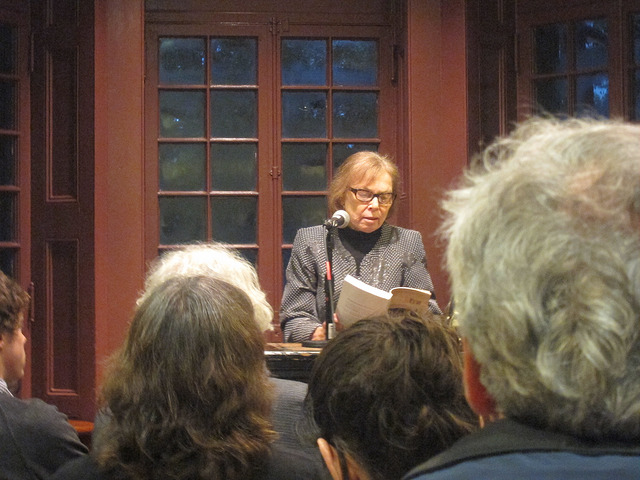Entertainment
A new collection of essays by Janet Malcolm

It would be frightening to be interviewed by Janet Malcolm. (File Photo: kellywritershouse/Flickr, CC BY 2.0)
“Nobody’s Looking at You: Essays” (Farrar, Straus and Giroux), by Janet Malcolm
It would be frightening to be interviewed by Janet Malcolm. But the same qualities that make her such a fearsome interlocutor also lend her essays an uncommon clarity.
Consider her profile of fashion designer Eileen Fisher, who makes simple, tasteful clothes for “women of a certain age and class …
for whom the hiding of vanity is an inner necessity.” Malcolm both admires their austere beauty but ridicules the New Age psychobabble the company’s executives speak.
The piece, called “Nobody’s Looking at You” after a scolding remark Fisher’s mother often made to her, lends its title to her latest collection of stylish essays, most published over the past 20 years in The New Yorker or The New York Review of Books. Her subjects are varied: the concert pianist Yuja Wang, who performs in what one critic labeled “stripper-wear”; MSNBC star Rachel Maddow; Tolstoy; and more.
Often, her own subjectivity becomes part of the story. In the Fisher piece, for instance, she says that during interviews at Fisher’s house, she began to worry about a cat left outside in the cold.
To Fisher’s apparent surprise, she asks about its welfare — then explains to Fisher the perils of agreeing to be interviewed.
“I found myself babbling about the ethical dilemmas of journalism, about the risk subjects take when they let journalists into their houses and the pangs journalists feel when they write their betraying narratives, and saw Eileen and her colleagues looking at me — as I had looked at them when they talked about their company — as if I were saying something weird. We were in different businesses with different vocabularies.”
It’s not the usual stuff of fashion profiles, but it’s vintage Malcolm, perhaps best known for her withering remarks about her own profession in a book about a lawsuit filed by convicted murderer Jeffrey MacDonald against the writer Joe McGinniss: “Every journalist who is not too stupid or too full of himself to notice what is going on knows that what he does is morally indefensible.”
Malcolm brings that same moral seriousness to every topic she addresses, even Jon Stewart and Stephen Colbert’s lighthearted Rally to Restore Sanity and/or Fear at the National Mall in Washington, D.C., in 2010. While describing the ebullient crowd, she rejects Stewart’s argument that the 24-hour cable news cycle — rather than, say, malign political forces — bears responsibility for the nation’s divisions.
Yes, Malcolm can be unforgiving. But her calm, brilliant essays are the perfect tonic for our troubled times.





















